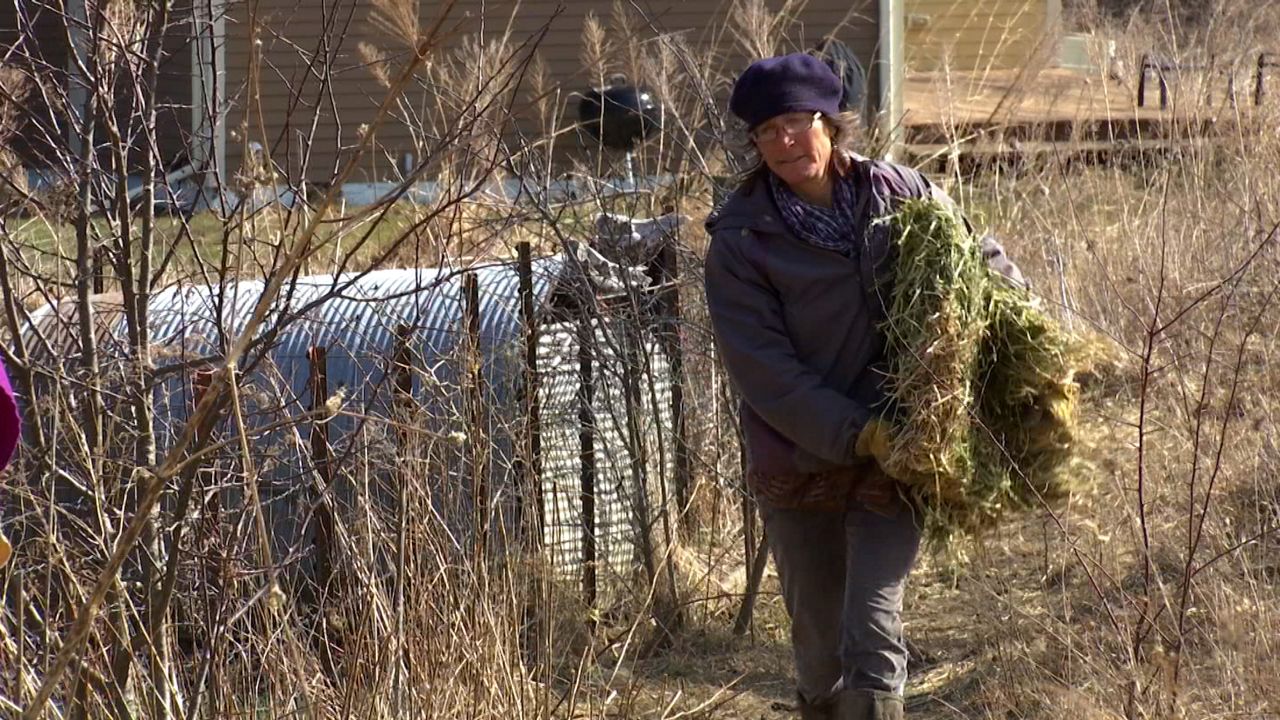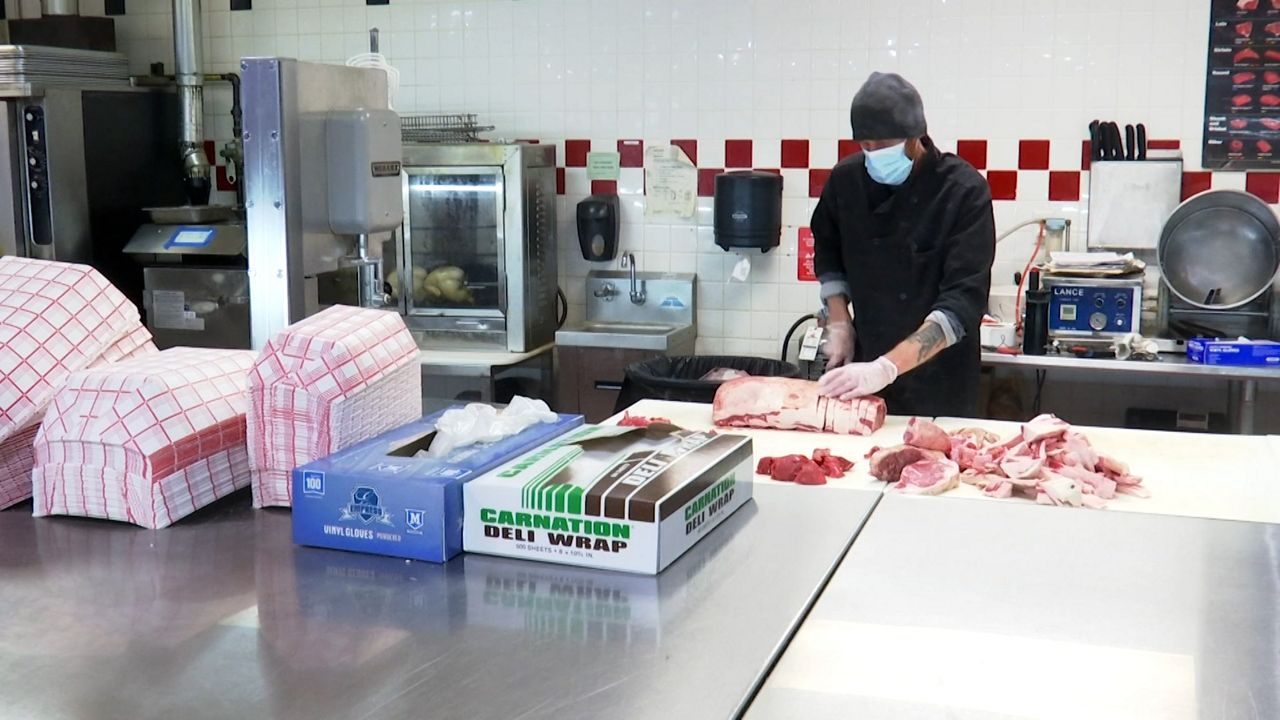MADISON, Wis.— Pandemic-related closures and delays caused major issues for the meat processing industry in 2020. Supplies in stores were lower at times while some farmers were forced to euthanize livestock with no processors to go.
Meat producers say there's been a problem with processing for years.
“It was a problem before COVID, COVID just really brought some awareness to it and amplified the issue,” said April Prusia, who raises pigs on her farm Dorothy's Range near Blanchardville, WI.
Prusia said the pandemic made her busier. People wanted to buy piglets from her to raise their own food. There was also more of a demand on her pigs as processing capacity at large plants fell.
“I was lucky enough that I had already booked my processing dates,” Prusia said.
Lucky because many livestock farmers rely on large factories to take their animals to. That was tested as many closed for coronavirus outbreaks. Once open, factories struggled to meet the same processing capacity while trying to institute social distancing precautions. The whole situation took a toll on factory workers.
Farmers turning to local and regional butchers were told they had to wait more than a year for an appointment — A back log that still exists now.
“When COVID hit that became more of a reality,” Prusia said. “There were people that used to call up their local butcher and were able to get in 10 years ago in a couple of months, and then COVID hit and everyone's calling and they were already backed up.”

The problem also caught the Wisconsin Farmers Union's eye, and it added meat processing infrastructure to its bi-annual budget priorities.
“COVID really impacted all of us by exposing a lot of those fragilities,” said Lauren Langworthy, director of special projects with WFU.
WFU says a reliance on large scale processing is a problem. They called the current system a monopoly, with four companies owning the majority of meat processing in the U.S.
“We have such a consolidated industry with as much as 98 percent of the national supply coming from just 50 different meat processing plants in this country,” Langworthy said.
Langworthy said that lowers prices to the farmers, but it's also forced small scale butchers and processors to go out of business over the years as they struggled to keep up with rates of the factories at a smaller scale.
When the large-scale plants had COVID shut downs and delays the small scale ones left couldn't keep up with the sudden jump in demand.
“In that realm we saw an entirely different issue popping up with COVID which was more that those small and mid-scale processors were absolutely overwhelmed by the demand for their services,” Langworthy said.

The farmers union is lobbying the state to invest in local or mobile meat processing among other calls to change the system. They want things like programs to train new butchers and get more businesses off the ground. Governor Tony Evers proposed money toward programs like that in his budget.
“There's a lot that can be done at a local level to invest in the small and mid-scale processing facilities,” Langworthy said.
Langworthy said on a federal level, the union wants to see stronger enforcement of anti-trust laws and get after consolidation and price-fixing practices in the meat industry.
“All of that really needs to be addressed,” Langworthy said. “We have the laws on the books, we just need to enforce them and strengthen them.”
Langworthy said the federal passage of the 'Ramp Up Act” will help state and custom plants be federally inspected and access interstate markets.
Prusia thinks there's momentum now for changes at the state and federal level.
“People are hearing us, so that's great,” Prusia said. “Sometimes it takes a crisis for the awareness to kind of percolate up and to get something done.”
Prusia isn't waiting around though. She and other farmers in her area are starting a co-op where they support a local processing company and have the butcher a co-owner along with the farmers.
“There's something magical that can happen if we can better work together and kind of beat the meat monopolies,” Prusia said.



